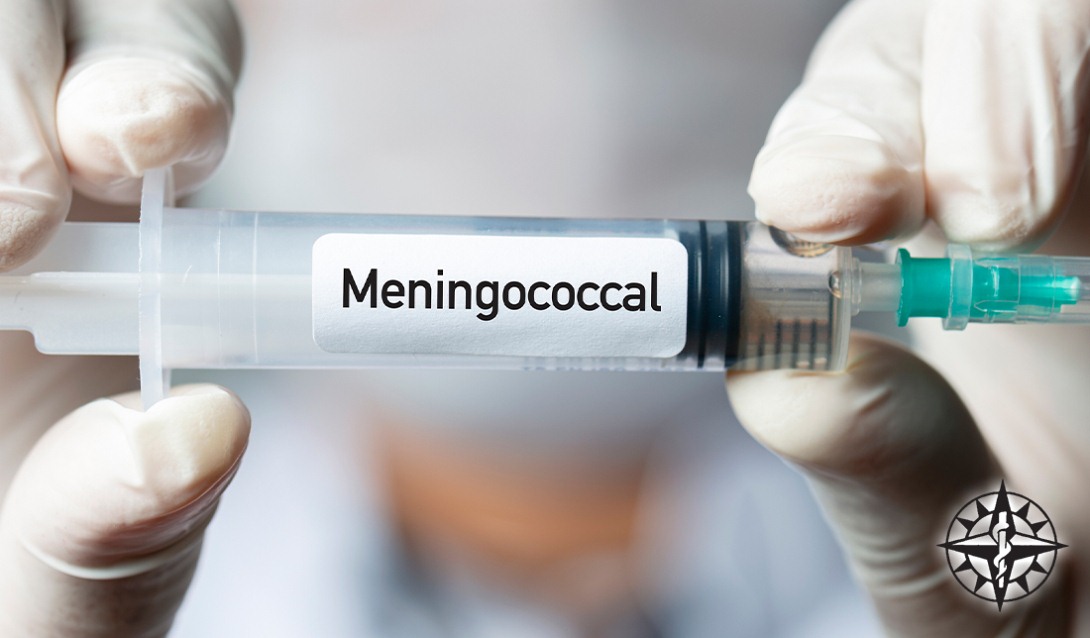Published on: July 20, 2022
Meningococcal Disease is a rare disease that can even lead to death in a healthy child or adult in only a few hours. This rapidly progressive bacterial infection is caused by Neisseria meningitidis which can cause serious blood infections and infections of the brain and spinal cord (meningitis).
Although contracting the disease is rare, statistics show that one out of seven individuals who get meningococcal disease will die (Minnesota Department of Health). Additionally, of those who recover, up to one out of five will be left with permanent disabilities (Minnesota Department of Health). That is why learning about the symptoms, treatment, and prevention of meningococcal disease is so important and can literally help save a life.
Due to recent outbreaks in Florida, it is especially important to stay up to date with the latest information about meningococcal disease. Let our team at IDATB help fill you in on everything you should know about the disease and how you can keep yourself safe in Florida.
Causes
According to the CDC, meningococcal disease is spread via the exchange of respiratory and throat secretions. This could be through kissing, sharing drinks, coughing, or living in close quarters (CDC). Like other diseases, meningococcal disease can have “carriers” of the Neisseria meningitidis bacteria without being sick. This can aid in spreading the disease silently to other people.
Who’s the Most At-Risk?
- Children ages 5 and under.
- Young Adults 15-24.
- Smokers.
- People with a suppressed immune system.
- Those who live in crowded accommodations.
- Men who have sex with men.
Symptoms
Even though symptoms do not guarantee the diagnosis of a disease, it is extremely important to listen to what your body is attempting to communicate through them. Think of them as clues and evidence that direct doctors in finding the right diagnosis and treatment plan. Prolonged symptoms can increase recovery time and can put the patient at risk for long-term damage. When it comes to meningococcal disease, time needs to be on your side.
This disease is extremely fast-acting and can be life-threatening if untreated. The moment an individual begins experiencing symptoms is the moment they need to go to the hospital. Here are the most common symptoms of meningococcal disease:
- Fever
- Stiff Neck
- Headache
- Confusion
- Increased Sensitivity to Light
- Reddish to Purple Non-Blanching Rash
- Nausea and Vomiting
Of the following symptoms, the two most important ones to look out for are headache and stiff neck, according to Dr. Jill Roberts (WESH 2 News Interview). To learn more, check out this short informational YouTube video that gives a brief overview of the signs and symptoms of meningococcal disease.
Treatment
After identifying the symptoms, it is crucial to act fast. Treating meningococcal disease can be successful if the patient receives prompt medical attention. Antibiotics work well at containing the infection and preventing further damage. It is typically recommended to undergo at least 4 days of treatment for adults and five to seven days of treatment for children. After treatment, patients should have no fever, stable blood pressure, and stabilized hematologic parameters (American Academy of Pediatrics). In addition to antibiotics, treatment plans are tailored depending on the severity of the illness. Some of the most common CDC-recommended treatments for the complications of meningococcal disease could include the following:
- Breathing support
- Medications aimed to treat low blood pressure
- Surgery to remove dead skin.
- Wound care for damaged skin
*Information sourced from the CDC*
If a patient does not receive the necessary treatment in time, patients can suffer potential complications such as amputation, deafness, nervous system problems, brain damage, or in extreme situations, death (CDC). Watch the YouTube video below to see how meningococcal disease treatment helped save a life.
Prevention
To prevent meningococcal disease, the CDC recommends receiving a meningococcal vaccine (MenACWY). By opting to receive a vaccine, you can protect yourself as well as those around you. While anybody can benefit from receiving the vaccine, it is especially recommended that college students, immunocompromised individuals, people living with HIV, and men who have sex with men, all get vaccinated during this outbreak. Like many vaccines, this does not guarantee you will not contract the disease, rather it will decrease the odds of it happening as well as hospitalizations. If you have been in close contact with someone who has meningococcal disease, you should contact your health care professional to see if you should get prophylaxis (antibiotics to prevent you from getting sick).
If you are unsure about the vaccine, check out the YouTube video below of a testimonial from a family who has been directly impacted by meningococcal disease.
Meningococcal Disease in Florida
As we have seen with the COVID-19 global pandemic, it only takes an uncontrolled outbreak in one area to spread across the world. That is why we should take every case of an infectious disease very seriously. As of 2022, Florida has had an increase in meningococcal disease cases across the state. Just within the first few months of 2022, there have been more recorded cases of meningococcal disease than any other year (10 Tampa Bay). According to a recent press release by the CDC,
“At least 24 cases and 6 deaths among gay and bisexual men have been reported. In response to this outbreak, CDC is recommending gay, bisexual, and other men who have sex with men get a meningococcal vaccine (MenACWY) if they live in Florida, or talk with their healthcare provider about getting vaccinated if they are traveling to Florida. CDC is also emphasizing the importance of routine MenACWY vaccination for people with HIV.”
If you live in Florida and fall into any of the categories and/or descriptions listed in the CDC’s press release, we highly urge you to get your meningococcal vaccine (MenACWY). As more people get vaccinated, there will be a decrease in hospitalizations, infections, and deaths within the community.
We are not here to create panic within our community, but rather to spread awareness of how we can decrease this number. If you want to stay up to date on the latest news surrounding the meningococcal disease, check out these clips from local news outlets.
- Health officials warn of meningococcal disease outbreak in Florida – YouTube
- Florida facing meningococcal disease outbreak – YouTube
- Central Florida is hotspot of state’s meningitis outbreak – YouTube
- https://www.tampabay.com/news/health/2022/06/17/florida-health-officials-warn-of-growing-meningococcal-outbreak/
Resources
- Meningococcal Disease Diagnosis and Treatment | CDC
- Meningococcal Disease in Florida, 2022 | CDC
- CDC Assists with Meningococcal Disease Outbreak Investigation in Florida | CDC Online Newsroom | CDC
- Meningococcal Disease – National Foundation for Infectious Diseases (nfid.org)
- Meningococcal Disease Facts – Minnesota Dept. of Health (state.mn.us)
Infectious Disease Associates of Tampa Bay (IDATB)
Infectious Disease Associates of Tampa Bay (IDATB) specializes in providing high-quality healthcare services for patients in the Tampa Bay metro area. If you would like to be tested for an infectious disease, then IDATB is here to help. With over 30 years of experience serving the Tampa Bay community, IDATB is led by experienced physicians and offers a convenient in-house lab for any necessary testing. If you have any questions about meningococcal disease, then call IDATB at 813-251-8444.





